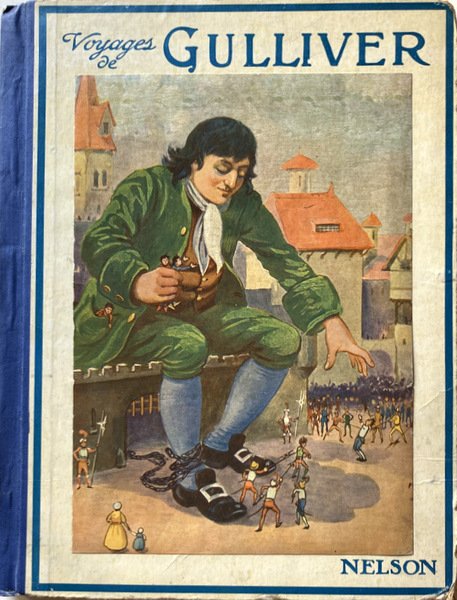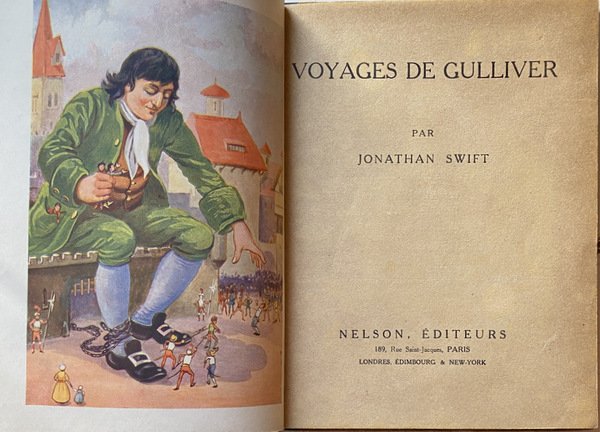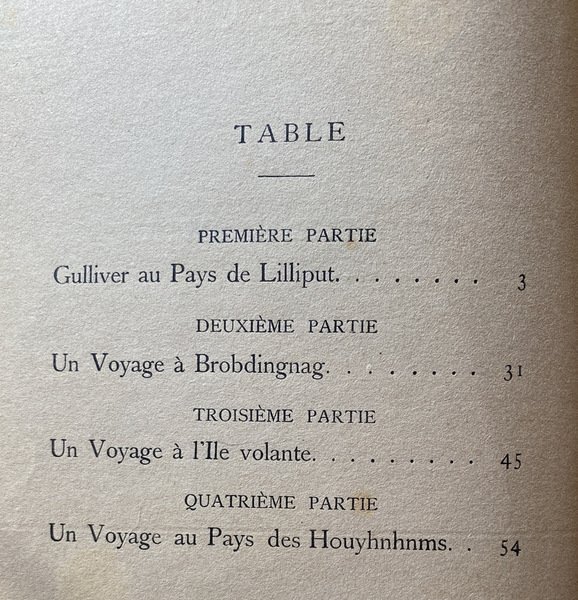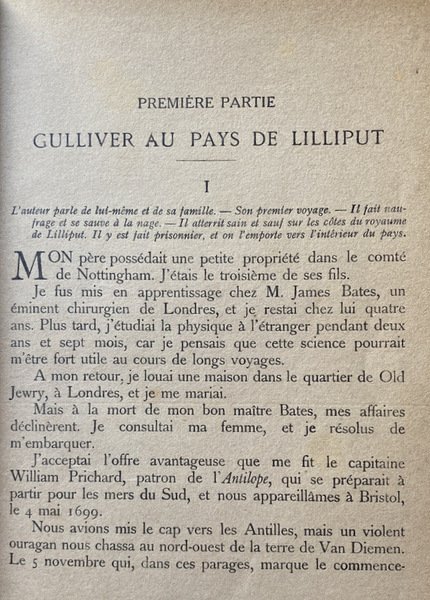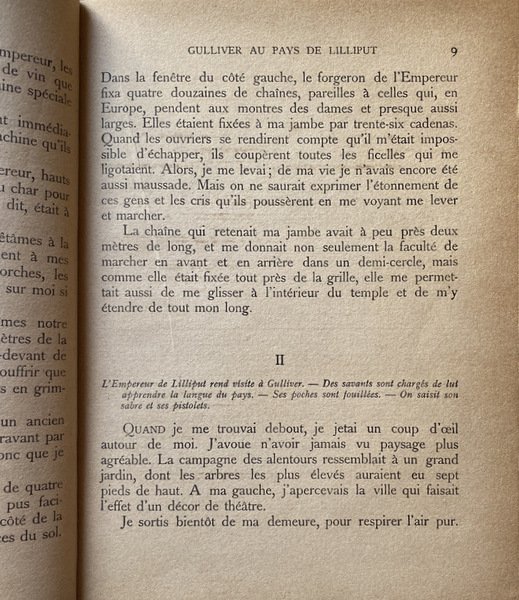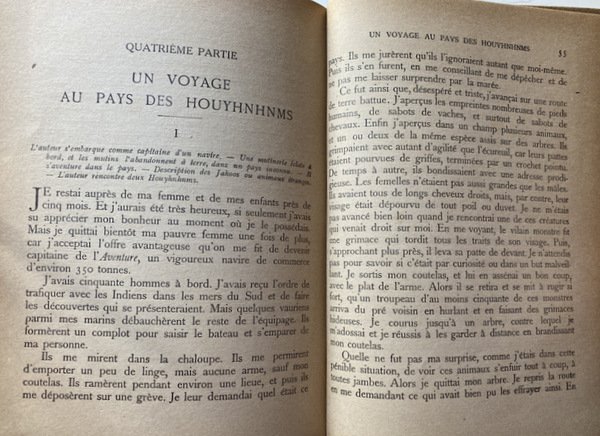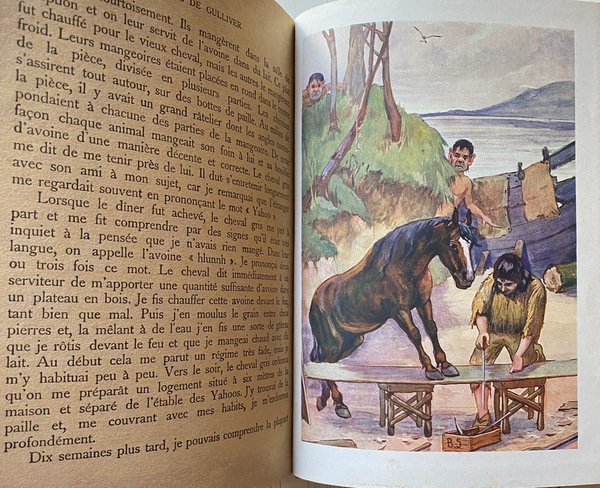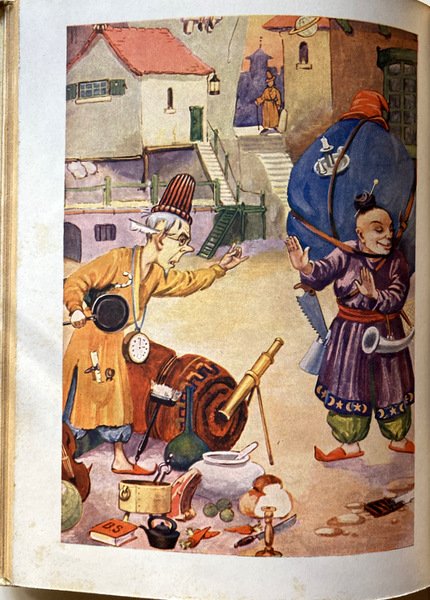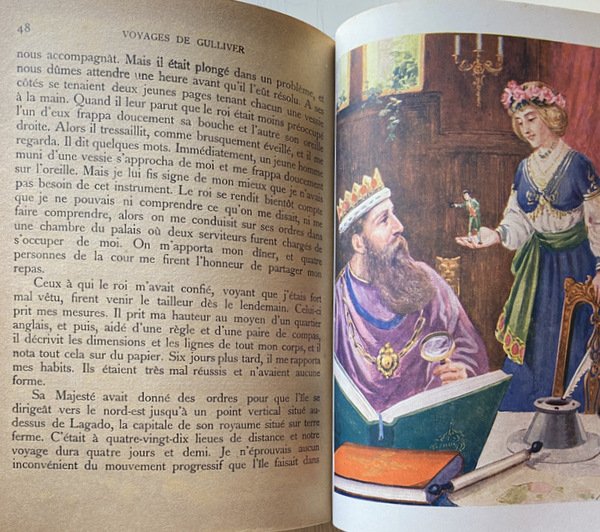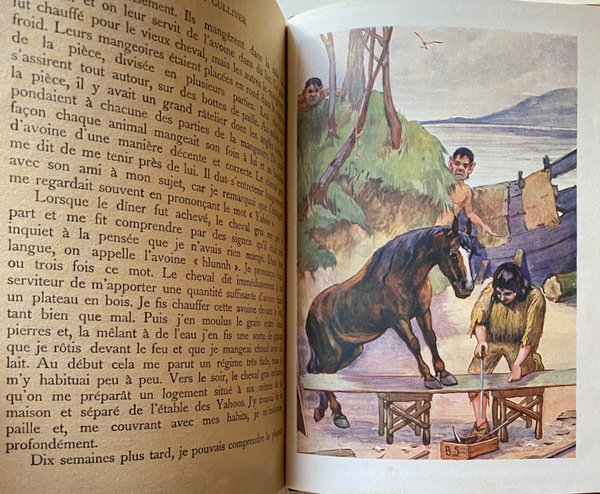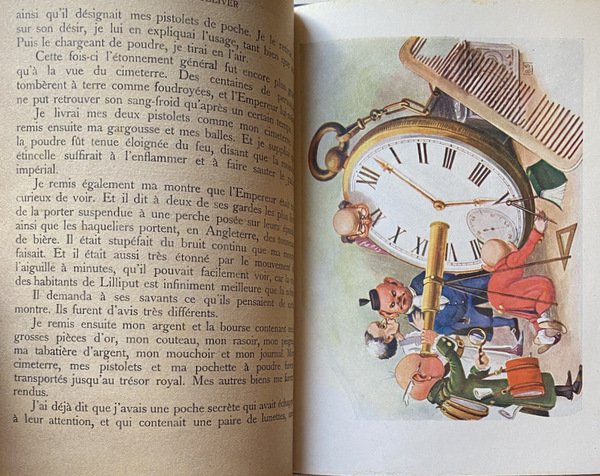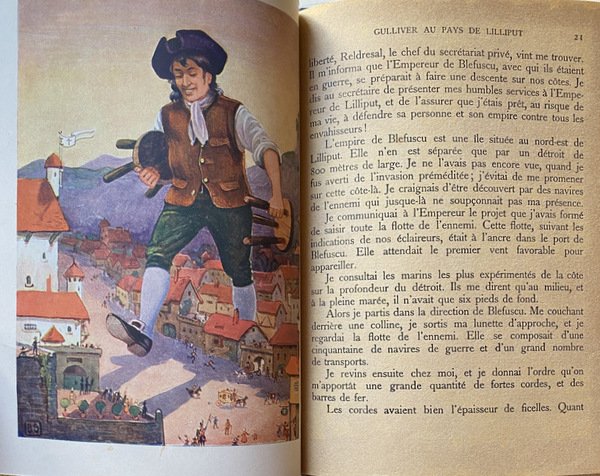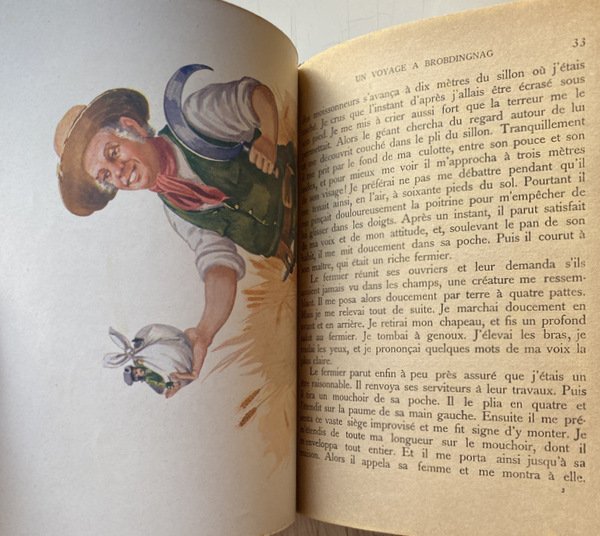VOYAGES DE GULLIVER
Payment methods
- PayPal
- Credit card
- Bank transfer
- Pubblica amministrazione
- Carta del Docente
Details
- Year of publication
- 1925
- Place of printing
- PARIGI/PARIS
- Author
- Jonathan Swift
- Volume
- 1
- Series
- Fuori Collana
- Publishers
- NELSON ÉDITEURS
- Size
- 24 cm
- Keyword
- Letteratura, Satira, Viaggio, Favole, Fiabe, Avventura, Classici, Collezionismo, Per ragazzi
- Binding description
- RILEGATO
- Dust jacket
- False
- State of preservation
- Fine
- Languages
- Italian
- Binding
- Hardcover
- First edition
- True
Description
DISPONIBILITÀ GARANTITA AL 99%; SPEDIZIONE ENTRO 12 ORE DALL'ORDINE. OTTIME CONDIZIONI GENERALI, LIEVE BRUNITURA/INGIALLIMENTO, LIEVI SEGNI DEL TEMPO. RARO.
The voyages of an Englishman carry him to such strange places as Lilliput, a land of people six inches high; and Brobdingnag, a land of giants.
Jonathan Swift, est né le 30 novembre 1667 à Dublin, en Irlande, et mort le 19 octobre 1745 dans la même ville. Il est un écrivain, satiriste, essayiste, pamphlétaire politique anglo-irlandais. Il est aussi poète et clerc et à ce titre il a été doyen de la Cathédrale Saint-Patrick de Dublin. Il est célèbre pour avoir écrit Les Voyages de Gulliver. Swift est probablement le plus grand satiriste en prose de la langue anglaise. Il publie ses uvres en usant de pseudonymes comme Lemuel Gulliver, Isaac Bickerstaff et M.B. Drapier, ou même anonymement. Il est connu enfin pour être un maître dans deux styles de satire, la satire horacienne et la satire juvénélienne.
Il publie en 1726, Les Voyages de Gulliver, satire considérée comme l'une de ses deux uvres majeures. On tient souvent cet ouvrage pour un conte pour enfants, sans doute parce que de nombreuses éditions très édulcorées ont rapidement paru dans les bibliothèques spécialisées en littérature enfantine. Il s'agit en fait, au-delà de la satire, d'un conte philosophique.
Sotto il nome di Lemuel Gulliver, Swift fa il resoconto dei suoi viaggi presso particolari popoli, parodiando lo stile del resoconto di viaggi avventurosi che era comune in quel periodo. Il libro fu pubblicato pochi anni dopo lo straordinario successo del Robinson Crusoe di Daniel Defoe e ottenne popolarità come opera destinata ai bambini.
In realtà si tratta di una feroce critica alla società e al comportamento umano del tempo: ognuno dei viaggi diventa il pretesto per irridere il sistema giudiziario, i meccanismi del potere, la politica, la pretesa razionalità, i vizi e i comportamenti dei suoi contemporanei, l'assurdità delle convenzioni sociali, l'irrazionalità della guerra e gli svariati interessi e motivi che la causano (interessi economici, conflitti dinastici e religiosi, dispute politiche, interessi personali o di potere, ecc.). L'atteggiamento di Swift è di profondo pessimismo sulle possibilità dell'uomo di migliorare.
L'opera s'inserisce in chiave parodistica anche nel genere letterario utopistico, iniziato proprio in Inghilterra nel Rinascimento con Tommaso Moro che nel suo romanzo L'Utopia descriveva una società perfetta realizzata dagli uomini nell'immaginaria isola di Utopia.
Descrizione bibliografica/Description bibliographique
Titolo/Title/Titre: Voyages de Gulliver. With illustrations
Titolo originale/Original title/Titre original: Gulliver's Travels
Autore/Author/Auteur: Jonathan Swift (1667-1745)
Lingua/Language/Langue: Francese, French, Français
Editore/Publisher/Éditeur: Parigi/Paris: Éditions Nelson, Livre Date n.p., Sans date, Senza data, (circa/approximately/environ 1925)
Lunghezza/Lenght/Longueur: 64 pagine; 24 cm; cartonné dos toilé bleu, couverture illustrated en couleurs hors texte/hardback blue canvas back, cover illustrated in color out of text/cartonato dorso in tela blu, copertina illustrata a colori fuori testo.
Soggetti/Subjects/Sujets: Voyages imaginaires, Romans, Nouvelles, Pour la jeunesse, Fiction, Gulliver's Travels Collection, The Kingdom of Lilliput, Eighteenth century prose, The most eminent English authors, Brobdingnag, Novels, Plays, Coloured picture book, Lemuel, Fictitious character, Juvenile works, Imaginary, Laputa, Balnibarbi, Luggnagg, Glubbdubdrib, Japan, Antilles, Antilope, Ile volante, Londres, Old Jewry, Houyhnhnms, Livres anciens, XXe Siècle, 1920-1929, Libri cartonati illustrati per bambini in francese, Favole, Fiabe, Fantasia, Avventura, Classici, Anni Venti, Libri da collezione rari, Collezionismo, Viaggio immaginario, Nani, Giganti, Romanzi, Narrativa, Settecento, Scrittori irlandesi anglosassoni, Letteratura inglese, Satira, Ironia, Inghilterra, Francia settecentesca, Ragazzi, Rarità, Viaggi avventurosi, Successi editoriali, Bestsellers, Lillipuziani, Indie Orientali, Giulio Cesare, Bruto, Omero, Aristotele, René Descartes, Pierre Gassendi, Immortalità, Struldbrug, Eterna giovinezza, Cavalli razionali, Yahoos, Romanzi fantastici satirici, Allegorie, Burocrazia, Distopici, Travels into Several Remote Nations of the World, in Four Parts, Lemuel Gulliver, First a Surgeon, and then a Captain of Several Ships, Prose du XVIIIe siècle, Les auteurs anglais les plus éminents, Brobdingnag, Romans, Pièces de théâtre, Livre d'images en couleurs, Personnage fictif, Œuvres pour la jeunesse, Pour enfants en français, Contes de fées, Fantastique, Aventure, Classiques, Années 20, Livres rares de collection, Voyage imaginaire, Nains, Géants, Écrivains irlandais anglo-saxons, Littérature anglaise, Satire, Ironie, Angleterre, France, XVIIIe siècle, Gars, Raretés, Aventure, Succès éditoriaux, Meilleures ventes, Lilliputiens, Indes orientales, Jules César, Brutus, Homère, Aristote, Immortalité, Jeunesse éternelle, Rationnel chevaux, Fantastiques satiriques, Allégories, Bureaucratie, Dystopies, Children's illustrated hardback books in French, Fairy Tales, Fantasy, Adventure, Classics, Twenties, Rare Collectibles Books, Imaginary Journey, Dwarfs, Giants, Novels, Eighteenth Century, Anglo-Saxon Irish Writers, English Literature, Satire, Irony, England, 18th century France, Guys, Rarities, Adventure travels, Editorial successes, Lilliputians, East Indies, Julius Caesar, Brutus, Homer, Aristotle, Immortality, Eternal youth, Rational horses, Satirical fantasy novels, Allegories, Bureaucracy, Dystopians
